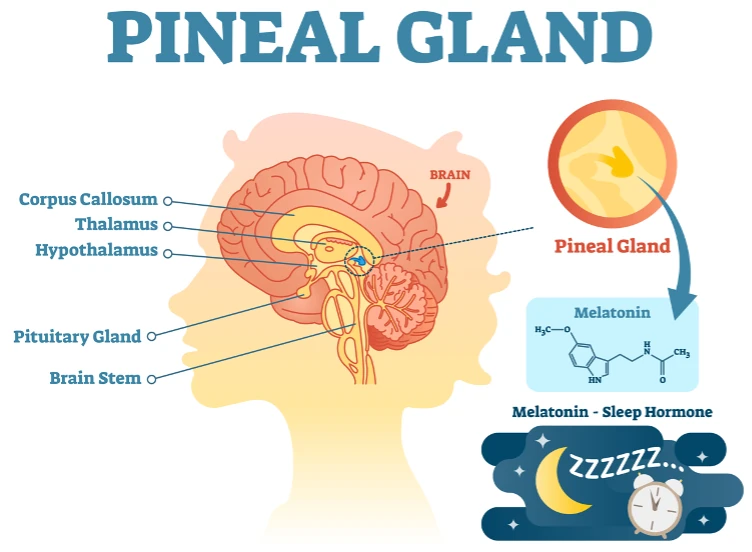Living a healthy lifestyle is vital to longevity. Common examples include exercising regularly, eating a balanced diet, and engaging in stress-reducing activities such as reading. However, sleep can often be overlooked at the expense of other activities, and it is essential to remember that having a good night’s sleep ensures your body is recharged fully for the next day. On average, it is recommended for an adult to have anywhere between 7 to 9 hours of sleep every night.
Poor sleep can cause many issues, such as:
- Accidents
- Weight gain
- Poor balance
- Low sex drive
- Mood changes
Hence, getting good sleep has never been more critical.
8 benefits of sleeping
Sleeping the recommended amount every night has many benefits. Below are 8 key benefits that are vital to healthy living.
1. Improved mood
Sleep is a restorative process for the body which improves energy levels. A good night’s rest can positively impact an individual’s mood. Inadequate or poor sleep can put individuals at a higher risk of experiencing mental distress. A chronic lack of sleep has been shown to lead to anxiety, depression and irritability; this can often be resolved with a consistent sleep routine and good sleep hygiene.
2. Healthy heart
Good sleep quality promotes cardiac health. During sleep, your heart rate slows, and your blood pressure decreases. This means that your heart and vascular system can relax, rest, and recover. Insufficient sleep is a risk factor for severe cardiac events, and lack of sleep can cause your blood pressure to increase. This can increase your risk of heart disease, heart attacks and heart failure.
3. Regulated blood sugar
Sleep impacts the hormone insulin, which the body uses to regulate blood sugar (glucose). Sleeping 7 hours or more each night allows your body’s glucose to be appropriately controlled. Individuals who sleep less than 7 hours every night are at a higher risk of developing type 2 diabetes as the body’s resistance to insulin increases. This happens because the body’s cells cannot use insulin appropriately, which leads to too much sugar in the bloodstream.
4. Improved mental function
Sleep is vital for improved memory and cognitive thinking. It is believed that sleep is necessary for the brain to grow, reorganise, restructure, and form new neural connections. This allows individuals to consolidate their memories and learn new information. A lack of sleep can affect an individual’s ability to function optimally during the day. Less than five hours of sleep has also been correlated with riskier behaviour.
5. Restored immune system
Sleep is also known to restore and repair the body, making people feel refreshed in the morning. During sleep, the body also produces the growth hormones required for development in children and adolescents. Similarly, these growth hormones are involved in the repair of the body. Inadequate sleep can affect these repair mechanisms in individuals and increase susceptibility to infections.
6. Stress relief
Appropriate sleep can help manage stress and allow people Quality sleep is also known to reduce anxiety, depression and other mental health conditions that can induce stress.
7. Athletic performance
Quality sleep is key to athletic recovery and the body’s production of growth hormones is highest during sleep. These hormones contribute to repair and muscle growth. Sleep also allows to combat the pressures of muscle strain and improve performance. It is also important to avoid overtraining. Without sleep, athletes are at risk of lowered performance and fatigue. A lack of sleep is also known to increase the risk of injury.
8. Healthy weight
Alongside exercise, stress management and eating a balanced diet, quality sleep is crucial to maintaining a healthy weight. During sleep, the body produces an appetite suppressor, leptin, and reduces the production of an appetite stimulant, ghrelin. A lack of sleep causes the inverse, leading to a greater feeling of hunger.
Quick tips to improve your sleep
Getting good sleep can sometimes prove to be an elusive task. We have listed below 5 ways you can try at home to help fall asleep quicker if you are having difficulties:
Mindfulness and meditation: meditation techniques often combine mental and physical aspects of our health. Thus, by targeting anxious, stressful thoughts alongside a physically stressed body, meditation can help us reach an overall state of relaxation.
Read a book or journal: try picking up a fiction or non-fiction book to read every night. This will create a calm environment and allow your body to relax before you sleep. We also recommend journaling every night to get all your thoughts from the day out of your mind and onto paper.
Avoid using a screen before bed: electronic devices such as mobile phones, laptops, PCs, tablets and TVs emit blue light. Blue light suppresses the production of melatonin (a hormone), which promotes sleep. Thus making it harder to fall asleep. Avoid using any electronic devices at least an hour before bed.
Stop drinking caffeine or alcohol: alcohol and coffee may both cause you to stay up at night. Whilst alcohol can make you feel sleepy, in some cases, you may have to wake up multiple times in the night to visit the bathroom. Coffee contains caffeine. This blocks the adenosine receptors responsible for making you feel sleepy. Thus, avoid having any form of caffeine at least 6 hours before bed.
Controlled breathing: there are different breathing techniques that you could try to help you sleep. These techniques work because slow and deep breaths enable a sense of calm.
here. It is important to get 7 to 9 hours of sleep where possible to put yourself in the best position to take advantage of the next day. If you would like to read more about what to do if you can’t sleep read our article: What should you do if you can’t sleep?
How can Dipesh help?
Sleeping 7 to 9 hours every night can be tricky. Sometimes, an underlying health cause needs to be addressed to allow you to return to good-quality sleep. If this is the case, it is important to identify the root cause as soon as possible and take the right steps to ensure the best treatment and care is given.
As a leading sleep psychiatrist, we offer consultations for those who struggle to sleep. Please contact us if you require further advice on how to fall asleep or are struggling for other reasons.










